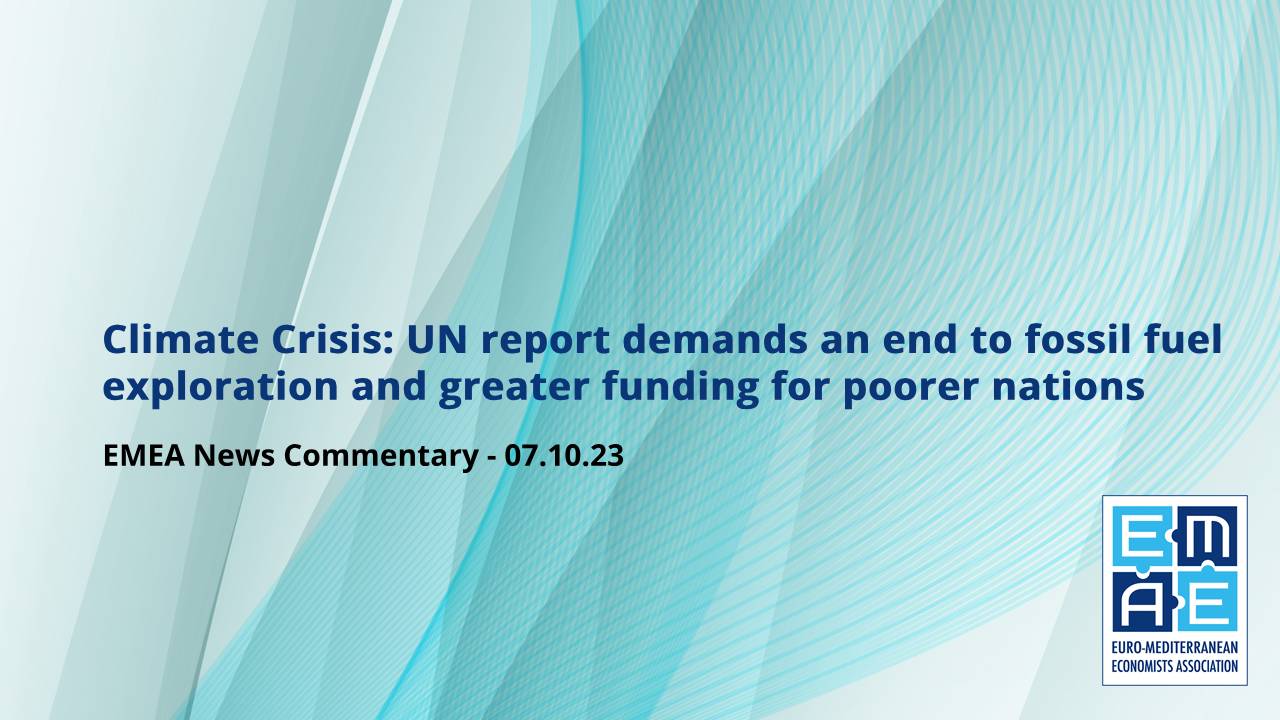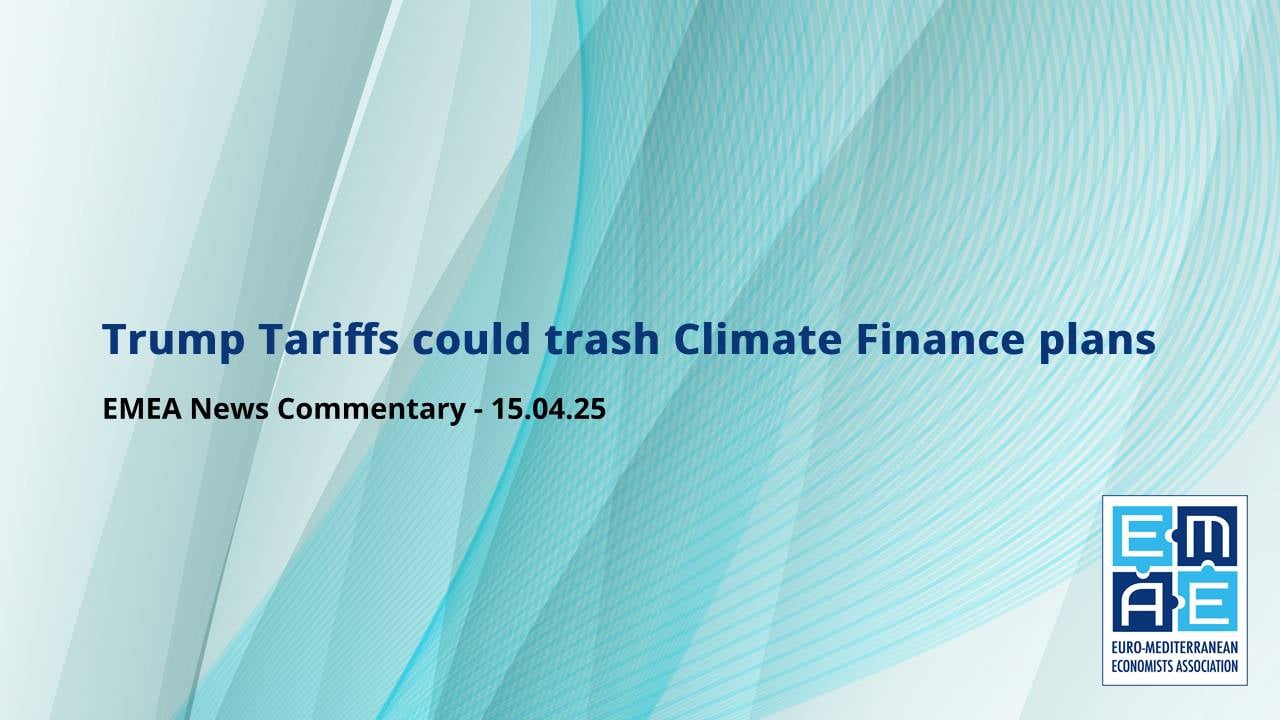By 2030, fossil fuel exploration needs to stop and climate crisis funding for poorer nations must be as high as $400 billion a year – these are the key targets laid out within the UN’s pre-COP 28 global stocktake report.
Their most recently published recommendations are earmarked for detailed discussion at the forthcoming Dubai Summit.
As outlined in the Guardian newspaper, the report warned that countries were still “way off track” from meeting the 2015 Paris climate agreement goals and that much more action would be required, if global heating levels were to remain at a maximum of 1.5˚C above the pre-industrial level target.
The idea of the UN global stocktake was mandated in Paris, a once-in-every-five-year check to see if countries were making progress towards meeting their emission-cutting goals.
The report proposes that, by 2030:
- Global fossil fuel exploration should cease.
- Climate funding for poorer countries should reach between $200bn and $400bn a year.
- A tripling of renewable energy capacity.
- A doubling of global energy efficiency by 2030.
UN climate chief, Simon Stiell, said the latest report provided Governments with a range of actions for consideration. “[These are] clear targets, which provide a north star for the action that is required by countries,” he said.
“This is a major opportunity being presented for the course correction that is so urgently called for,” Stiell said. “[The report] lays out elements that can be incorporated into a response.”
But whilst he recognised that most countries agreed on the need to change direction, there was “significant divergence” on how to achieve those changes.
No guarantee of making the COP28 negotiations
The global stocktake papers will be discussed next week at a series of UN nation technical meetings and again at a “pre-Cop” gathering in Abu Dhabi at the end of October.
An earlier UN document had contentiously called for the phasing out of fossil fuels – an issue previously sidelined at the COP26 and 27 UN climate summits.
But according to the Guardian newspaper, “there is no guarantee any such proposals will make it into any final outcome from the two weeks of negotiations at COP28 or even that they will be on the official agenda for the summit.”
However, Catherine Pettengell, executive director of Climate Action Network UK, said the UN’s latest global stocktake recommendations should be progressed. “COP28 must be a decisive moment to end the era of fossil fuels and bring about a just and equitable transition,” she asserted. It was clear from the report that “an agreement on ending fossil fuels must be at the heart of the outcomes for COP28 to be a success.”
Harjeet Singh, head of global political strategy at Climate Action Network International, said there was a growing consensus around a fossil fuel phase out and the era of rhetoric had ended. “It’s time to hold culpable fossil fuel corporations accountable,” he declared. “COP28 must deliver more than words – it should initiate a process to craft a new global fossil fuel treaty, filling the void left by the Paris agreement.”
He urged that priority should be given to the needs of developing countries and poorer people. “This new global framework needs to ensure that all workers and communities reliant on fossil fuels for jobs or energy, especially in developing nations, receive support through international cooperation. Their right to a just transition to a greener, safer world must be honoured,” he added.
Replacing coal, oil and natural gas “at a rapid rate”
Separately, but also with COP28 in mind, the International Energy Agency (IEA) has warned that fossil fuel demand must be cut by a quarter by 2030, to limit global warming to 1.5˚C. And it has called on Governments to boost their clean energy supply to avert energy shortages and sudden price spikes, the Financial Times has reported.
In its latest assessment, the IEA has said coal, oil and natural gas “will all need to be replaced by clean energy at a rapid rate”. Otherwise, the world’s 2050 net zero target would be derailed.
The OECD-funded organisation made their latest projections “at a time of rising tensions with oil producers.” Countering this, OPEC countries have accused the IEA of stoking “volatility”.
On the contentious issue of rising energy costs, the IEA warned that prolonged high prices would result if the decline in fossil fuel investment preceded the expansion of clean energy. An “orderly” transition was “far from guaranteed.”
To stay within the 1.5˚C ceiling in global temperatures “stringent and effective policies” would “spur clean energy deployment and cut fossil fuel demand by more than 25 per cent by 2030 and 80 per cent in 2050,” the IEA have maintained.
Oil demand would need to fall from 100mn barrels a day to 77mn b/d by 2030 and natural gas demand would need to be reduced from 4,150bn cubic metres in 2022 to 3,400bn over the same period. This would involve a 75 per cent cut in energy sector methane emissions by 2030, which would only eat into about 2 per cent of oil and gas industry net income in 2022, according to the agency.
IEA Executive Director, Fatih Birol, recognised that some fossil fuels would still be required by 2030 but that governments needed to “provide the framework” to ensure a smooth move to cleaner energy. However, the IEA welcomed “positive developments” over the past two years, including the rapid uptake of solar panels and electric vehicles.
The agency said that clean energy investment needed to climb from $1.8tn this year to $4.5tn each year by the early 2030s. It also called for “bolder action” warning that insufficient action now could result in significant future costs to “strip carbon dioxide emissions out of the air after 2050 – rather than avoiding them in the first place.”
UN report urges global end to fossil fuel exploration by 2030 | Climate crisis | The Guardian





